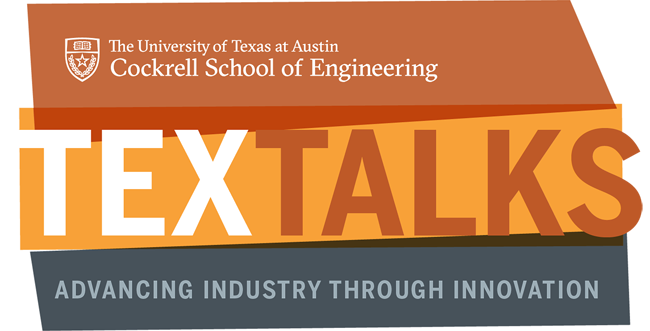
Texas Engineering Executive Education, PETEX®, and the Office of Research Relations have teamed up to bring the industry a new collaborative webinar series - Texas Engineering TexTalks: Advancing Industry Through Innovation. This series brings to industry, educators, and STEM professionals relevant and intriguing content on current hot topics presented by top industry experts and faculty from the Cockrell School of Engineering at the University of Texas at Austin. Browse below to view upcoming and previous TexTalks Webinars.
PREVIOUS WEBINARS
Dr. Erhan Kutanoglu
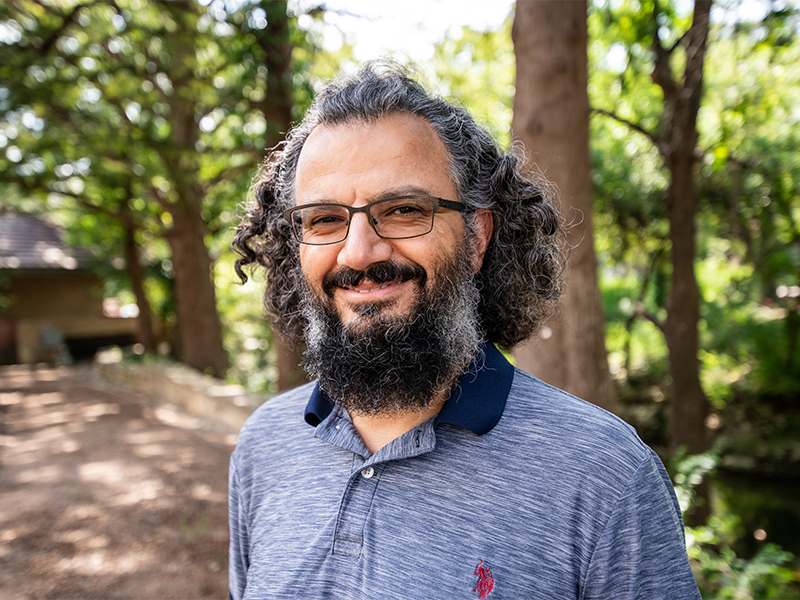
Topic: Disaster Decision Making: Integrated Prediction and Optimization for Resilience Planning
October 15, 2021 at 10:00 am (CDT)
How come we still have devastating weather-related tragedies despite increasingly powerful weather prediction tools? Could it be as simple as “connecting the dots?”
The 10-day power outage following Hurricane Ida in New Orleans resulted in heat-related deaths. Uri, the February ’21 winter storm, caused a power outage that resulted in deaths in Texas due to lack of heating in freezing temperatures. It is disappointing that we have high-resolution weather prediction models, yet we still struggle to prevent these disasters. One potential culprit is the disconnect between prediction models and disaster decision making. Our research bridges this gap by linking them. When integrated and optimized, our models suggest resilience decisions based on a full grasp of the uncertainty quantified using the scenarios created with the most up-to-date predictions at hand. Our approach captures the infrastructure network interactions and correlations of potential impacts of the disaster, and explicitly models the dependency between three stages of resilience decision making (mitigation, preparedness and recovery), resulting in well-informed decision all around. We present results from multiple projects using two infrastructures, the healthcare network and the power grid, impacted by two types of events, hurricanes and winter storms (using Harvey and Uri as examples), all tested on realistic Texas-based datasets.
Erhan Kutanoglu specializes in integrated humanitarian logistics and disaster analytics, particularly hurricane and other extreme weather event mitigation, preparedness and recovery decision making and optimization. His goal is to combine predictive science-based models with prescriptive stochastic optimization models to develop an end-to-end understanding of uncertainty and optimized decision making in humanitarian logistics and disaster resilience, particularly for critical infrastructure such as healthcare and power grid. His other interests span manufacturing and service logistics optimization, including supply chain and network design, inventory management, transportation and production planning and scheduling. He holds a PhD in Industrial Engineering from Lehigh University, and is a recipient of NSF CAREER Award and IBM Faculty Award.
Dr. Moriba Jah
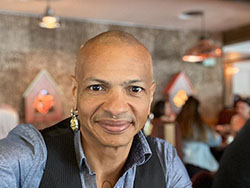
Topic: Monitoring the Nature & Behaviors of Anthropogenic Space Objects
September 24, 2021 at 10:00 am (CDT)
We currently track over 26000 unique anthropogenic space objects orbiting the earth. Of these, roughly 4000 are satellites that provide services or capabilities of use and the remainder is garbage. There is a growing number of space actors, all driven to make use of outer space as they desire without a mechanism for global governance or joint resource utilization. This, inter alia, is leading to a certain tragedy of the Commons, unless a method of aggregating massive amounts of disparate and heterogeneous data can be developed and made to serve the various needs of space safety, security, and sustainability. In order to support a variety of decisions, there is a foundation need to quantify, monitor, and assess the nature and behaviors of the objects in this near-earth space ecosystem. This work will describe these efforts and provide examples of our state-of-the-art in this endeavor.
Moriba Jah is an Associate Professor of Aerospace Engineering and Engineering Mechanics at The University of Texas at Austin where he is the holder of the Mrs. Pearlie Dashiell Henderson Centennial Fellowship in Engineering.
Dr. Shwetadwip Chowdhury
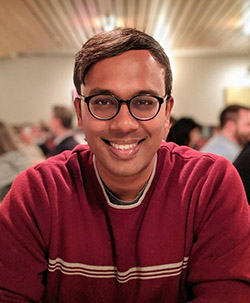
Topic: Next Generation Imaging in Science and Medicine
April 30, 2021 at 10:00 am (CDT)
Past decades have seen dramatic developments in optical imaging technologies, computing power, and data accessibility. These developments have recently combined to spawn the field of computational imaging, where optical systems and computational algorithms are jointly designed within data-driven imaging pipelines. This new imaging paradigm has found great success in consumer photography, where mobile phones routinely offer low-cost and high-resolution imaging with noise reduction, 3D imaging, digital refocus, etc. New research brings a similar paradigm shift into optical microscopy, and specifically explores big-data computational microscopy techniques for the biomedical and clinical sciences.
The unique challenges associated with wavelength-scale scientific imaging distinguish microscopy from photography and make it an exciting application for cutting-edge computational research. This talk will focus on recent developments in computational microscopy that enable multi-dimensional super-resolution as well as 3D imaging into optically scattering biological specimens, with a goal to drive scientific and medical discovery. Innovations from this work can be applied broadly across several basic-science, biomedical, and clinical fields, such as pathology, developmental biology, cancer-biology, immunology, physiology, and neuroscience.
Shwetadwip Chowdhury is an Assistant Professor in the Department of Electrical and Computer Engineering at the University of Texas at Austin. His research interests are in developing next generation optical imaging technologies for applications in science and medicine. A key emphasis in his work is the joint design of novel optical imaging systems and advanced computational frameworks. This co-design of hardware and software enables imaging capabilities not possible in traditional optical imaging systems. Dr. Chowdhury’s work on deep tissue imaging is currently funded by the Chan Zuckerberg Initiative, and he was recently named a 2021 Fellow for the new Scialog initiative, Advancing Bioimaging. Previously, Dr. Chowdhury was a NIH Ruth L. Kirschstein NRSA Postdoctoral Fellow at University of California Berkeley, in the Department of Electrical Engineering and Computer Sciences. Before that, he received his Ph.D. and B.S. degrees from the Department of Biomedical Engineering at Duke University.
Dr. Joan Brennecke
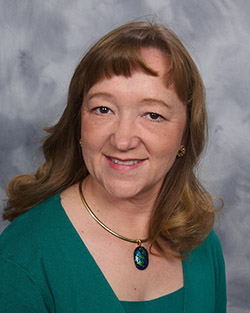
Topic: CO2 Capture with Ionic Liquids
March 26, 2021 at 12:00 pm (CDT)
Carbon dioxide (CO2) is a potent greenhouse gas (GHG) and contributions of CO2 emissions to climate change is one of our most pressing environmental challenges. Separation of CO2 from stationary emission sources, such as power plants and chemical manufacturing facilities, followed by geological sequestration and/or conversion to useful products, will likely play a crucial role in GHG mitigation. Current technology using absorption with aqueous amine solutions is energy intensive and suffers from corrosion, degradation and other challenges. Our research has focused on developing a new class of materials, Ionic liquids (ILs), for CO2 capture applications. Ionic liquids are salts with low melting points so that they are liquid in their pure state (i.e., without any water) even at room temperature. Since they are salts, they have exceedingly low vapor pressures, so they will not evaporate into the cleaned gas stream from which CO2 has been removed. They can be made from innumerable different cations and anions along with a wide variety of substituents. Thus, they can be designed and tuned for specific CO2 separation applications. In this talk, we will present our major developments in designing, synthesizing, and testing ILs for CO2 separations.
Joan F. Brennecke is the Cockrell Family Chair in Engineering #16 in the McKetta Department of Chemical Engineering at the University of Texas at Austin(UT Austin). She joined UT Austin in 2017, following an academic career at the University of Notre Dame. She serves as the Deputy Director of one of NSF’s Research Centers, the Center for Innovative and Strategic Transformation of Alkane Resources (CISTAR.) Her research interests are primarily in the development of less environmentally harmful solvents. These include supercritical fluids and ionic liquids. In developing these solvents, Dr. Brennecke’s primary interests are in the measurement and modeling of thermodynamics, thermophysical properties, phase behavior and separations. Dr. Brennecke is a member of the National Academy of Engineering and has received numerous awards from the American Chemical Society, the American Institute of Chemical Engineers, the U.S. Department of Energy and others. She has published more than 200 research papers garnering over 20,000 citations and has served as the Editor-in-Chief of the Journal of Chemical & Engineering Data since 2010.
Dr. Stephen Hodges
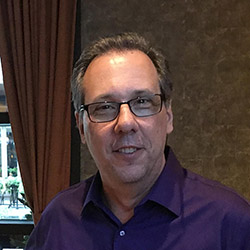
Topic: Unlock Energy at Sea - Design of Offshore Platforms for Oil, Gas and Wind
March 12, 2021 at 10:00 am (CDT)
For more than 100 years, people have endeavored to unlock hydrocarbon resources beneath the sea. In the earliest days, clever engineers used long piers jutting out into the ocean and lakes. Today, energy is harvested from coastal locations to hundreds of miles from shore in water depths up to 3,000 meters, using fixed and floating offshore platforms. The evolution of technology and innovation in the design of fixed and floating offshore platforms has been integral to the success of the offshore energy industry. This talk will focus on the history of offshore structures and an introduction to the wide range of structural types and the skills needed to design, build and install them. For further learning, the University of Texas at Austin Cockrell School of Engineering Executive Learning program offers three short courses on offshore platform design, as well as a new Fundamentals of Offshore Engineering Professional Certificate. To learn more, see:
Fundamentals of Offshore Structures (FOS):
https://executive.engr.utexas.edu/epd/fos.php
Design of Fixed Offshore Platforms (DFOP):
https://executive.engr.utexas.edu/epd/fixed.php
Design of Floating Production Systems (DFPS):
https://executive.engr.utexas.edu/epd/floating.php
Fundamentals of Offshore Engineering Professional Certificate Program:
https://executive.engr.utexas.edu/epd/offshore_cert.php.
Our speaker is Stephen Hodges, PhD
Steve has been part of the offshore industry for over 35 years, including research, consulting, and 30 years at Shell Oil company, where he was involved in the design, construction and installation of most of Shell’s deep water developments worldwide in some capacity or another, including hydrodynamics, global performance, structural design, construction site engineering, project management and organizational management. He was the Engineering Manager for riser systems for many years, and spent the last five years at Shell as a senior technical authority responsible for development and maintenance of technical standards and technical assurance for major projects, as well as coaching and mentoring junior engineers and looking after their career development. Since retiring from Shell, Steve remains engaged in the offshore industry through API committees and consulting, as well as helping young professionals find their way in their careers through teaching, career coaching, and mentoring. Steve teaches several blocks of the UT Floating Production Systems course.
Steve earned a B.S. in Civil Engineering from Northwestern University, and M.S. and PhD degrees from the University of California, Berkeley in Naval Architecture & Offshore Engineering, focusing on hydrodynamics and ship motions.
He can be found on LinkedIn at www.linkedin.com/in/stephenbhodges and can be contacted directly at
Dr. Michael Pyrcz
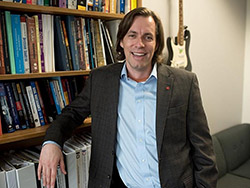
Topic: Data Analytics and Machine Learning for Energy Geoscience and Engineering
February 12, 2021 at 10:00 am (CDT)
Every energy company is interested in growing internal capabilities to add value with data analytics and machine learning. Energy has a long history of working with large, complicated geoscience and engineering datasets and there is a growing toolbox of old and new emerging data-driven methods available that may offer improved efficiency and potentially new insights from vast and complicated subsurface datasets. This talk is an opportunity to link subsurface data analytics and machine learning to fundamental concepts from probability, statistics, geoscience and engineering and to provide an enthusiastic, but at times critical perspective on what we may expect in the data-driven science revolution.
Recently, Michael made the move to The University of Texas at Austin to accept the role of Associate Professor in the Department of Petroleum and Geosystems Engineering, with an assignment in the Bureau of Economic Geology and Department of Geological Sciences, Jackson School of Geosciences. At The University of Texas at Austin, Michael teaches and supervises research on subsurface data analytics, geostatistics and machine learning. In addition, Michael accepted the role of Principal Investigator for the College of Natural Sciences, The University of Texas at Austin, freshman research initiative in energy data analytics. Before joining The University of Texas at Austin, Michael conducted and lead research on reservoir data analytics and modeling for 13 years with Chevron’s Energy Technology Company. He became an enterprise-wide subject matter expert, advising and mentoring on workflow development and best practice. Michael has written over 50 peer-reviewed publications, an open source Python data analytics package and a textbook with Oxford University Press. He is currently an associate editor with Computers and Geosciences, editorial board member for Mathematical Geosciences and the Program Chair for the Petroleum Data Driven Analytics Technical Section (PD²A) for the Society of Petroleum Engineers International. For more information go to www.michaelpyrcz.com, see his course lectures at www.youtube.com/GeostatsGuyLectures, along with the demonstration numerical workflows at https://github.com/GeostatsGuy and contributions to outreach through social media at https://twitter.com/GeostatsGuy.
Dr. Manish Kumar
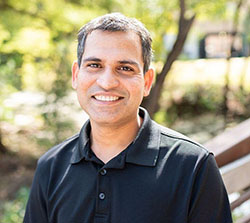
Topic: Bioinspired Ideas for Sustainable Separations
January 29, 2021 at 10:00 am (CDT)
Membranes are rapidly becoming the fastest growing platform for many process applications in water treatment, process industries, pharmaceutical manufacturing and food processing. This talk will present ideas for bioinspired separations that could enable difficult separations while reducing the impact on the environment by reducing energy input, both embedded and operational. All synthetic membranes (and indeed most separation processes) have selectivity-permeability tradeoffs, i.e. if a membrane has high permeability, it will have a lower selectivity between two solutes or between a solute and a solvent. In molecular separation dense membranes, separation is due to the mechanism of solution-diffusion through a wide distribution of free volume elements which is responsible for the trade-off. A simple solution, in concept, to such a challenge is to do what nature does – design precise angstrom to micron scale pores or free volume elements with no polydispersity. We will discuss bioinspired ideas, and its realization in our lab, and possible applications of such an ideal membrane based on biological protein channels and artificial channels that mimic their structure. We will also describe an ongoing project in our lab to create interfacially polymerized channel-based membranes for highly selective gas separations and other applications.
Manish Kumar is an Associate Professor of Environmental Engineering at UT Austin. He received his bachelor's from the National Institute of Technology in Trichy, India in Chemical Engineering. He completed a master's in environmental engineering at the University of Illinois and then worked for approximately seven years in the environmental consulting industry on applied research projects primarily centered around membranes for water treatment, desalination, and reclamation. He returned to Illinois to complete a PhD in the area of biomimetic membranes and then conducted postdoctoral research at the Harvard Medical School on the structure of water channel proteins, aquaporins. He works in the areas of sustainable filtration, biophysical transport characterization, membrane protein-based membranes and devices, and on developing artificial membrane proteins(based on synthetic supramolecular macrocycles). His group also works on improving membrane processes to prevent biofouling and colloidal fouling and for treating water from unconventional oil and gas operations. At UT his new initiative is on creating bioinspired synthetic membranes for gas and hydrocarbon separations and other industrial applications.
David Peraza
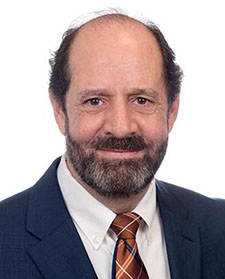
Topic: Lessons from Failures for Structural Engineers
January 15, 2021 at 10:00 am (CDT)
This presentation highlights the lessons learned from failures that were caused partially or wholly by an error or omission on the part of the structural engineer. The seminar uses landmark cases that resulted in a dramatic failure, and also little known cases of high importance.
For each case, the consequences of the failure are presented, the failure itself is described, and the technical causes are discussed. The presentation attempts to place the audience members “in the shoes” of the engineer.
Mr. Peraza has over 40 years of broad structural engineering experience including design, investigations of major collapses, and evaluation of distressed buildings. He is licensed as a professional in 17 states. Following the 9/11 terrorist attacks on the World Trade Center, Mr. Peraza led the emergency engineering response for the City of New York. In 2014 he received the Forensic Engineering Award from the American Society of Engineers (ASCE) for his work. He has published and lectured extensively on the subject of structural failures. He is the author of a chapter in the "Handbook of Forensic Engineering", published by McGraw-Hill, and a chapter in the handbook “Structural Condition Assessment” published by Wiley.
He has served on ASCE national committees, such as:
- Technical Council on Forensic Engineering,
- ASCE 7, "Minimum Design Loads for Buildings and Other Structures,"
- ASCE 37, “Design Loads for Structures During Construction.”
Mr. Peraza is a Principal Engineer in the New York City office of Exponent, an international engineering and scientific consulting firm.
Dr. Carolyn Seepersad
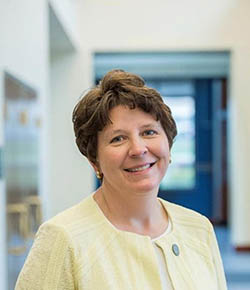
Topic: Additive Manufacturing and Design Innovation
December 4 at 1:00 pm (CDT)
Additive manufacturing (AM) is making a profound impact on the way engineers realize customized parts, and it is democratizing product design and manufacturing in unprecedented ways. In this talk, we will explore:
(1) the AM technologies available at the new University of Texas at Austin Center for Additive Manufacturing and Design Innovation and some of the design innovations that they enable. Examples include customized helmets and other impact protection equipment, digital anatomy models, and lightweight lattice structures for biomedical, military, and aerospace applications.
(2) the research frontiers at the intersection of AM and design innovation and some of the new AM processes under development to expand those frontiers. Examples include volumetric sintering and reactive extrusion AM for high speed production of lightweight, high-strength polymers for construction, aerospace, and other demanding applications.
Carolyn Conner Seepersad is the J. Mike Walker Professor of Mechanical Engineering at The University of Texas at Austin. She is the director of the Center for Additive Manufacturing and Design Innovation and a member of the U.T. System Academy of Distinguished Teachers. Her research interests include design for additive manufacturing, simulation-based design of materials and structures, and process innovation in additive manufacturing. She is a co-organizer of the annual Solid Freeform Fabrication Symposium and a member of the ASME Design Engineering Division Executive Committee. She is the author of more than 125 peer-reviewed conference and journal publications, including best paper awards from ASME and ASEE. She teaches courses on engineering design and additive manufacturing.
Rick Bobigian
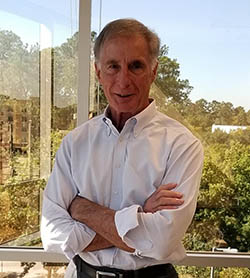
Topic: When will the price of oil return to pre-pandemic rates?
November 20 at 10:00 am (CDT)
In 2020, the human population and its behavior has been unexpectedly altered by the COVID 19 Pandemic. Everyone has been affected to some degree…some of the affects were positive but most were not positive. The changes in behavior of the population have altered the behavior of the world economies. The supply and demand systems of these economies have adjusted to meet pandemic needs for goods and services.
One noteworthy and severely affected economic subsystem is the worldwide demand for energy, in general and motor fuels, specifically. The actions taken by governments located around the world to control the spread of COVID caused a sudden and dramatic reduction in the demand for motor fuels and for crude oil, the raw materials used to make most of those fuels. The reduction in consumer demand rocked the system and backed up the fuel supply chain from the refineries to the wellhead.
Since February 2020, the Upstream, Midstream and Downstream business units involved in providing fuels to industrial, commercial and transportation end users worldwide scrambled to adjust to the reduced demand. Cuts were made across the system. Now, all parties are trying to feel the bottom in demand and at the same time, predict the path to pre-pandemic consumption of fuels.
Rick Bobigian has been teaching the Macroeconomics of the Upstream Oil & Gas Business since 1986, as a module for Petroleum Fundamentals, a core course of PETEX. He created this module for the course to address the last major slump in demand for fuels. In this event, he will offer a view of the future for fuels built on the fundamentals. As in all prognostication there are two parts; that is, the prediction itself and the timing of the prediction. Come see what he has to say.
Rick Bobigian is the President of 1776 Energy located in Houston, Texas. He has been an Instructor for PETEX since 1977. He is a graduate of the Colorado School of Mines with a BSc. in Geologic Engineering.
Dr. Peter Stone
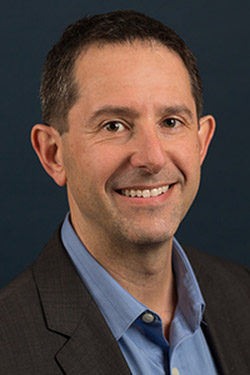
Topic: Learning and Multiagent Reasoning for Autonomous Robots
October 23 at 1:00 pm (CDT)
For robots to operate robustly in dynamic, uncertain environments, we are still in need of multidisciplinary research advances in many areas such as computer vision, tactile sensing, compliant motion, manipulation, locomotion, high-level decision-making, and many others.
This talk will focus on two essential capabilities for robust autonomous intelligent robots, namely online learning from experience, and the ability to interact with other robots and with people. Examples of theoretically grounded research in these areas will be highlighted, as well as concrete applications in domains including robot soccer and autonomous driving.
Peter Stone is the founder and director of the Learning Agents Research Group (LARG) within the Artificial Intelligence Laboratory in the Department of Computer Science at The University of Texas at Austin, as well as associate department chair and chair of Texas Robotics. His main research interest in AI is understanding how we can best create complete intelligent agents.
Dr. Filippo Mangolini
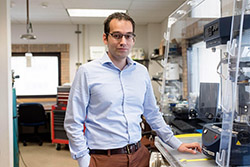
Topic: Engineering Material Surfaces for Extreme Environments
October 8th at 9:00 am (CDT)
Dr. Mangolini’s research group aims to develop a physically-based understanding of the phenomena occurring on material surfaces and at solid/solid, solid/liquid interfaces under extreme environments and far-from-equilibrium conditions.
During this event, Filippo will discuss:
a. The development of in situ analytical techniques to gain unprecedented, multi-scale insights into the mechanism of action of additives used in lubricants to improve the efficiency and service life of engines, gearboxes, turbines;
b. The development of hard and lubricious coatings with enhanced thermo-oxidative stability able to withstand the harsh conditions of the Low Earth Orbit environment;
c. The evaluation of the surface degradation phenomena occurring on metallic biomaterials used for total hip or knee arthroplasty due to the synergistic action of mechanical wear and corrosion.
Dr. Ofodike Ezekoye
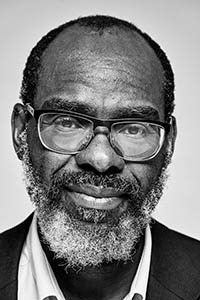
Topic: Understanding Safety for Lithium ion Batteries
September 25th at 10:00 am (CDT)
For most new technologies the drivers for adoption are based on factors like image enhancement, cost, perceived usefulness, usability, and aesthetics. Safety is rarely considered in early production adoption and is, thus, less emphasized in early design and development of new technologies. Designing for safe use and operation is challenging because prior to market penetration it is difficult to imagine all the failure modes that may occur with any given new technology. Safe design and use of lithium-ion battery operated systems have faced some of these challenges.
In this seminar, Dr. Ezekoye will discuss case studies of battery system failures, failure mechanisms of lithium-ion battery systems, and research approaches to understand the failure cascade and improve safe design of battery systems.
Dr. Eric Bickel
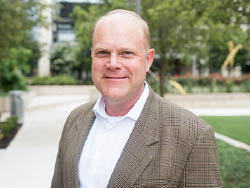
Topic: COVID-19 – What is the data telling us?
August 28th at 10:00 am (CDT)
During this discussion, Eric Bickel will analyze the performance of the models used to forecast the spread of COVID-19 and relate differences in performance to differing modeling approaches and structures. For example, some COVID-19 models are “bottom-up” and model the interactions between individuals and communities in detail (i.e., SIR models). While other models are “top-down” and attempt to capture the high-level dynamics of the spread. We will also be comparing the performance of these models to a simple (two-equation) model that we have used to forecast the spread of COVID-19 at the national, state, and local level. Bickel will finish this discussion by talking about apparent paradoxes present and the implications for decision analysis.
Dr. Venkat Subramanian
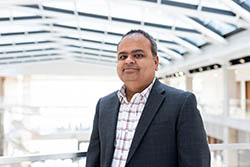
Topic: Model-based battery systems for current and the next-generation
August 7th at 10:00 am (CDT)
Dr. Subramanian's group aims to be the world’s leading group in the area of model-based Battery Management System (BMS) and model-based design of current and next-generation energy storage devices.
During this technical talk, Venkat will discuss:
- The use of real-time physics based adaptive models to enable faster prediction of possible failure mechanisms and modifications of protocols for batteries.
- Software development and hardware implementation of electrochemical models to improve performance of batteries for electric vehicles and the electric grid.
- A nonlinear model predictive control framework to enable the application of model-based charging profiles for batteries to improve life and reduce charging time.
Dr. Michael E. Webber
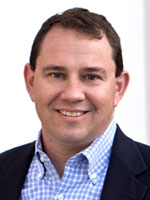
Topic: Global energy trends and transition
July 31st at 10:00 am (CDT)
The worldwide energy sector is going through dramatic shifts in energy demand, end-uses, and sources. Dr. Webber will give an entertaining and big-picture overview of global energy trends mixed in with humorous anecdotes, historical snippets, and unexpected examples that will give a surprising look into the future of energy.
Kerry Malone
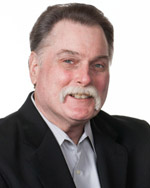
Topic: Understanding pipeline right of way
Presented on: July 10th, 2020
Right-of-way agents cannot successfully negotiate unless they understand the project, its goals, and the philosophy of the pipeline company. Join us to learn more about what Pipeline Right of Way means to you and your business.
Engineering Leadership Panel Discussion
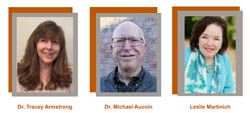
Topic: Keeping the innovation engine running
Presented on: July 24th, 2020
In times of crisis, the urgency for creative ideas and agile processes overcomes the bureaucratic barriers that normally stifle innovation. Join us to learn more about what you can do to lead the permanent implementation of this urgency into your organization's everyday work.
Dr. David Allen
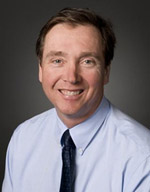
Topic: Project Astra and methane emissions in upstream oil and gas
Presented on: June 26th, 2020
This first-of-its-kind project aims to allow producers to find & fix significant methane releases at or below the cost of current monitoring. Project ASTRA, will establish a sensor network that will leverage advances in methane-sensing technologies, data sharing and data analytics to provide near continuous monitoring. This will allow producers to find and fix significant methane releases at or below the cost of current monitoring technologies, most of which measure emissions only on an annual or semi-annual basis.





